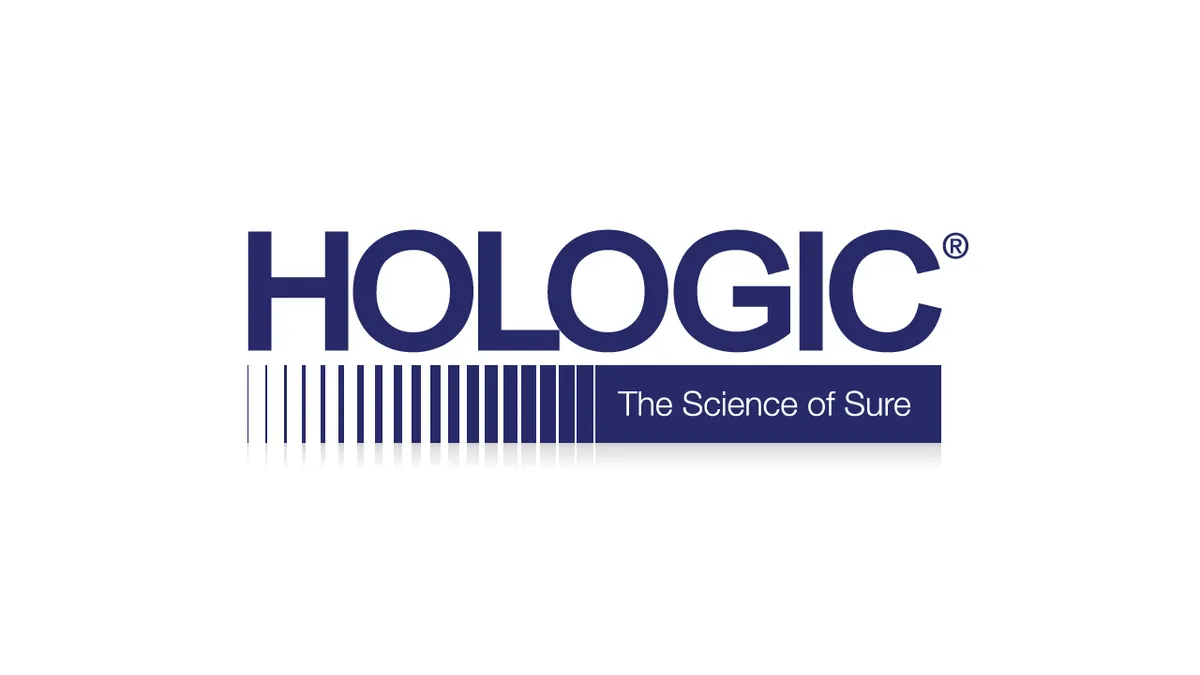Dive Brief:
- Hologic on Monday announced its SARS-CoV-2 assay has been granted an emergency use authorization from FDA for testing of individuals without symptoms or other reasons to suspect COVID-19 infection.
- The company described its Panther Fusion SARS-CoV-2 diagnostic as the first widely available, high-throughput molecular test specifically authorized for screening asymptomatic people for the coronavirus.
- FDA also authorized Hologic's pooling protocol for symptomatic testing with the Panther Fusion assay, which enables clinical laboratories to combine up to five patient samples into a single tube for processing.
Dive Insight:
PCR tests are the gold standard for determining whether someone with symptoms, or who has had a close exposure, has the coronavirus and is infectious. For those without symptoms, guidance from the CDC has been murky at best.
After facing significant backlash from public health officials, the Centers for Disease Control and Prevention on Sept. 18 reversed its guidance on using the tests on asymptomatic people.
CDC previously stated that people without COVID-19 symptoms don’t necessarily need to be tested. Now, the agency's latest guidance "reinforces the need to test asymptomatic persons, including close contacts of a person with documented SARS-CoV-2 infection."
Hologic contends that its Panther Fusion assay, authorized for screening asymptomatic people for the virus, will help to detect early infection in exposed individuals and limit the spread as the U.S. re-opens schools and employees return to workplaces.
The test, which runs on its automated Panther Fusion system, can provide initial results in about three hours and process more than 1,000 coronavirus tests in a 24-hour period. More than 2,000 high-throughput Panther systems have been installed in clinical laboratories worldwide and the assay is widely available, according to the company.
Hologic said it is also seeking an EUA for asymptomatic testing for its Aptima SARS-CoV-2 assay. The company contends that its assays are the "most analytically sensitive of the fully automated, high-throughput molecular tests on the market," citing a recent report published by FDA which compared more than 50 COVID-19 tests,
"High analytical sensitivity is one of the key characteristics for tests to be used effectively in asymptomatic screening and pooling workflows," Hologic said in a written statement.
However, such PCR tests must be sent to a laboratory, a process that can take days to turnaround results. Other assays from major test manufacturers, such as Abbott, detect antigens and have been authorized by FDA for viral testing. These point-of-care tests provide results at the testing site in minutes, not hours.
Abbott's point-of-care antigen test received an EUA from FDA in late August. BD, Quidel and LumiraDx previously got the agency's nod for their antigen diagnostics, all of which turn around results in about 15 minutes. However, the Abbott BinaxNOW COVID-19 Ag Card does not require instrumentation and has an immunoassay that, like a pregnancy test, displays colored lines on a test card to show whether a sample contains SARS-CoV-2.
The Rockefeller Foundation, which has worked on U.S. testing strategy recommendations, recently wrote: "Even with major improvements, including the use of pooled testing for screening, laboratory testing cannot come close to fulfilling the nation’s screening test needs. They aren’t convenient, simple, or inexpensive enough to use at the scale needed."
HHS in late August announced a $760 million contract award to Abbott for 150 million rapid, point-of-care COVID-19 antigen tests, which cost $5 each, to be deployed in 2020 to schools and vulnerable U.S. populations such as seniors in nursing homes.
"Point of care is really where the action is. It's a part of the ecosystem, not the entirety. We still need referral, big laboratory, highly sensitive, highly specific tests," said Assistant Secretary for Health Brett Giroir during a Friday call with members of the media.











